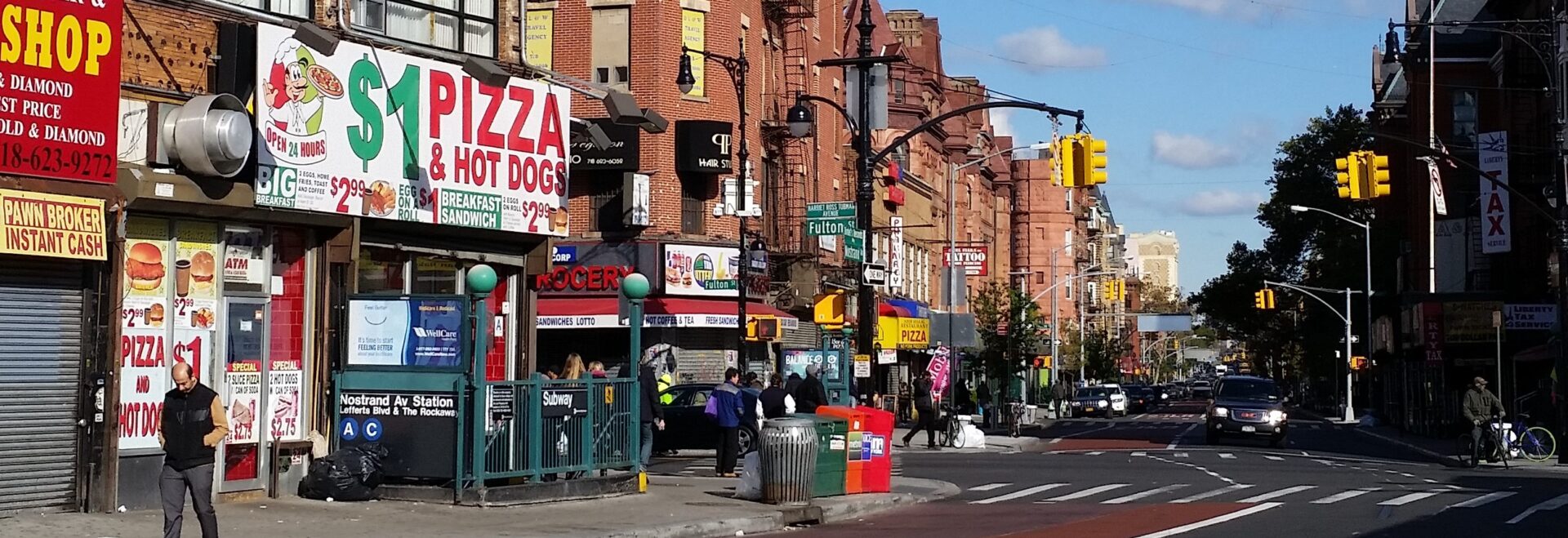Click here to download a PDF of the complete course syllabus.
Navigate to the Course Schedule tab to see a breakdown of the syllabus’ schedule and hyperlinks to lectures.
Navigate to the Readings & Resources tab for links to course readings and other helpful links.
Navigate to the Assignments tab for a drop down menu of course assignments.
Navigate to the Blog tab to link to the Class Group Site Forum where weekly Blog assignments will be posted.
I. INSTRUCTOR INFORMATION Erin Lilli, M.Arch, MS,Arch; elilli@gradcenter.cuny.edu; office by appointment
II. COURSE DESCRIPTION
Gentrification is a hot button issue and has become a buzzword in popular culture. You’re likely to know it when you see it and may be affected by it in your everyday life; but, what exactly is gentrification; what causes it, and why is it spreading? If we read beneath the surface of the consumption you see – like new luxury condos, artisan cheese shops, yuppies – we enter the sphere of production with highly mobile global capital, intercity competition, and unfettered market forces. Gentrification is a manifestation of neoliberal economic and social restructuring that contributes to the reproduction of urban inequalities and the displacement of marginalized and disadvantaged groups who have a right to the city. It’s a process rooted in (often racialized) class transformations, predicated on the commodification of housing, and attributed to the uneven spatial development inherent to advanced capitalism. Although gentrification is a complex and “chaotic” process as well as a contentious political topic, this course is designed to give students who have never heard the term ‘gentrification’ before a basic understanding of what it is, how it functions, and why we should be concerned about it. Furthermore, students need not already be familiar with concepts from political economy or Marxists perspectives – any terms we come across will be explained in our discussions or in lecture.
Through lectures, readings, class discussion, and four assignments; students will develop a richer understanding of how gentrification is defined, how it operates, and in what ways it has manifested and been resisted in the context of New York City and elsewhere. We will engage in various interrelated concepts such as: housing in its various forms, forms of zoning, rent regulations, and relevant city policies (eg. Mandatory Inclusionary Zoning) to learn how the production and consumption of the built environment, and housing specifically, are part of the larger dynamics of global capital accumulation and prevailing political ideologies.
The purpose of this course is three-fold:
- to gain a foundational understanding of how gentrification is produced and manifests in urban space;
- to critically assess the role of gentrification in perpetuating New York’s housing crisis and urban inequality; and
- be able to identify key actors promoting and resisting gentrification
How this course is organized:
This is a 6-week course with both undergraduate and graduate students in which you will develop a mini-case study of a gentrified neighborhood in New York City. Given the brevity of the term, the schedule will be more intense than a normal semester; each week you will be responsible for the following:
- Couse readings (note: there will be additional readings for graduate students which are optional for undergraduates)
- Class discussion
- Blog post
- Assignment
- Attending lecture
III. COURSE GOALS & OBJECTIVES
- Describe how gentrification is understood in the context ongoing theoretical debates
- Elevate your understanding of gentrification, beyond its hallmark visual indicators (eg. boutique shops, trendy bars), as a process of urban restructuring employed as a tactic of neoliberalism
- Examine the role of gentrification in contemporary housing issues
- Become familiar with grassroots anti-gentrification and equitable housing advocates in NYC
- Improve reading, writing and presentation skills
IV. REQUIRED TEXT
This is an Open Education Resource course including Open Access readings, thus there are no required texts to purchase for this course—all readings and lectures will be available on the course website or the Group Site when noted.
V. GRADING
This course has a total of 100 points you can earn in the following ways:
- Class Participation: 25pts
- Blog Posts (8 pts ea.): 40 pts
- Mini-Case Study: 35pts
A+ 97-100pts
A 93-96pts
A- 90-92
B+ 87-89
B 83-86
B- 80-82
C+ 77-70
C 73-76
C- 70-72
D+ 67-69
D 60-66
F 0-59
Acceptance of late work is at the discretion of the instructor and may result in point deductions.
PLEASE make every effort to stay on top of your assignments—we only have 6-weeks for this course and it will be very difficult to help you get back on track if you fall behind.


